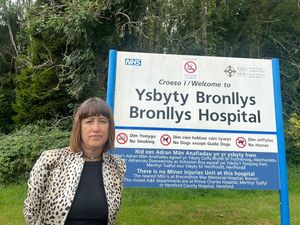‘Chestfeeding’ among terms being introduced at NHS trust to boost inclusivity
Staff have been asked to use gender-neutral language alongside – not instead of – traditional terms to ensure that all groups are represented.
Terms like “chestfeeding” and “human milk” are being introduced at an NHS trust in a bid to boost inclusivity.
Staff have been asked to use gender-neutral language alongside – not instead of – traditional terms to ensure that all groups are represented.
Brighton and Sussex University Hospitals NHS Trust (BSUH) is the first in the country to use what it calls the “additive use of gender-inclusive language”.
A policy document on the trust’s website explains that the approach involves “using gender-neutral language alongside the language of womanhood, in order to ensure that everyone is represented and included”.
It adds: “Gender identity can be a source of oppression and health inequality.
“We are consciously using the words ‘women’ and ‘people’ together to make it clear that we are committed to working on addressing health inequalities for all those who use our services.”
The decision was taken following discussions with local, national and international experts in trans and non-binary healthcare as well as trans and non-binary parents who use the trust’s services and in the wider community.
The document says: “If we only use gender-neutral language, we risk marginalising or erasing the experience of some of the women and people who use our services.
“We understand the fear of erasure; however, marginalising other groups because they are rare will not improve care for women.”
The language changes do not apply when discussing or caring for individuals in a one-on-one capacity, the document says.
Instead, language and documentation should reflect the gender identity of the individual.
Some of the terms being adopted are:
– “Breast/chestfeeding”, in place of “breastfeeding”;
– “Human milk” or “breast/chestmilk” or “milk from the feeding mother or parent”, in place of “breastmilk”;
– “Maternal and parental” or “maternal/parental”, in place of “maternal”;
– “Woman or person”, in place of “woman”.





